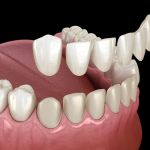- 1-Understanding-Tooth-Sensitivity-After-Cleaning
- 2-Common-Causes-of-Tooth-Sensitivity-Post-Cleaning
- 3-How-to-Manage-and-Relieve-Sensitivity
- 4-When-to-See-a-Dentist-for-Persistent-Sensitivity
- 5-How-Dentistry-Toothtruth-Can-Help
1. Understanding Tooth Sensitivity After Cleaning
It is common for patients to experience tooth sensitivity after professional dental cleanings. This sensitivity typically arises due to the exposure of dentin, the layer beneath tooth enamel, which can react to temperature changes, pressure, or certain foods.
While usually temporary, understanding the causes helps patients anticipate and manage this discomfort effectively.
2. Common Causes of Tooth Sensitivity Post-Cleaning
Several factors can contribute to tooth sensitivity after cleaning:
2.1 Removal of Plaque and Tartar
Cleaning exposes areas of the tooth that were previously shielded, making nerves more reactive.
2.2 Gum Recession
If gums have receded, the roots of teeth become exposed during cleaning, increasing sensitivity.
2.3 Enamel Wear
Worn enamel from brushing or acid erosion makes teeth vulnerable after cleaning.
2.4 Use of Ultrasonic Scalers
Tools that remove deep deposits may cause temporary irritation to tooth surfaces and gums.
3. How to Manage and Relieve Sensitivity
Effective strategies to ease sensitivity include:
- Using toothpaste designed for sensitive teeth
- Avoiding very hot, cold, or acidic foods temporarily
- Maintaining gentle brushing techniques
- Rinsing with fluoride mouthwash to strengthen enamel
Many patients find relief within a few days after their cleaning.
4. When to See a Dentist for Persistent Sensitivity
If sensitivity persists beyond two weeks or worsens, it could indicate underlying dental issues such as cavities or gum disease. Consulting a dentist promptly ensures early diagnosis and treatment.
Ignoring ongoing sensitivity may lead to more complex problems.
5. How Dentistry Toothtruth Can Help
Dentistry Toothtruth specializes in comprehensive dental care, including managing post-cleaning tooth sensitivity. Their experienced professionals provide personalized advice, gentle cleaning techniques, and treatment plans to protect your smile and comfort.
Visit Dentistry Toothtruth to learn more about preventing and treating tooth sensitivity effectively, ensuring your dental health and peace of mind.







 Tacoma Dental Care, Dr. Thi Truong Nguyen, DMD.5.0 (29 review)
Tacoma Dental Care, Dr. Thi Truong Nguyen, DMD.5.0 (29 review) Will County Community Health Center2.0 (177 review)
Will County Community Health Center2.0 (177 review) Isabel Correa DDS inc.3.0 (11 review)
Isabel Correa DDS inc.3.0 (11 review) Dr. Joseph V. Esposito, DDS0.0 (0 review)
Dr. Joseph V. Esposito, DDS0.0 (0 review) All Family Dental and Braces4.0 (689 review)
All Family Dental and Braces4.0 (689 review) KK Dental Edison NJ4.0 (396 review)
KK Dental Edison NJ4.0 (396 review) The Importance of Oral Health Education During Pregnancy for a Healthy Pregnancy
The Importance of Oral Health Education During Pregnancy for a Healthy Pregnancy Best Tips for Brushing Your Teeth Properly for Healthy Gums: Essential Techniques for Oral Health
Best Tips for Brushing Your Teeth Properly for Healthy Gums: Essential Techniques for Oral Health Why Skipping Dental Checkups Can Lead to Bigger Oral Health Problems
Why Skipping Dental Checkups Can Lead to Bigger Oral Health Problems Advantages of Porcelain Dental Restorations
Advantages of Porcelain Dental Restorations How Can Diabetes Cause Tooth and Gum Problems? Preventing and Managing Oral Health Issues
How Can Diabetes Cause Tooth and Gum Problems? Preventing and Managing Oral Health Issues Healthy Habits for Promoting Good Oral Health and Hygiene: Tips for a Healthy Smile
Healthy Habits for Promoting Good Oral Health and Hygiene: Tips for a Healthy Smile